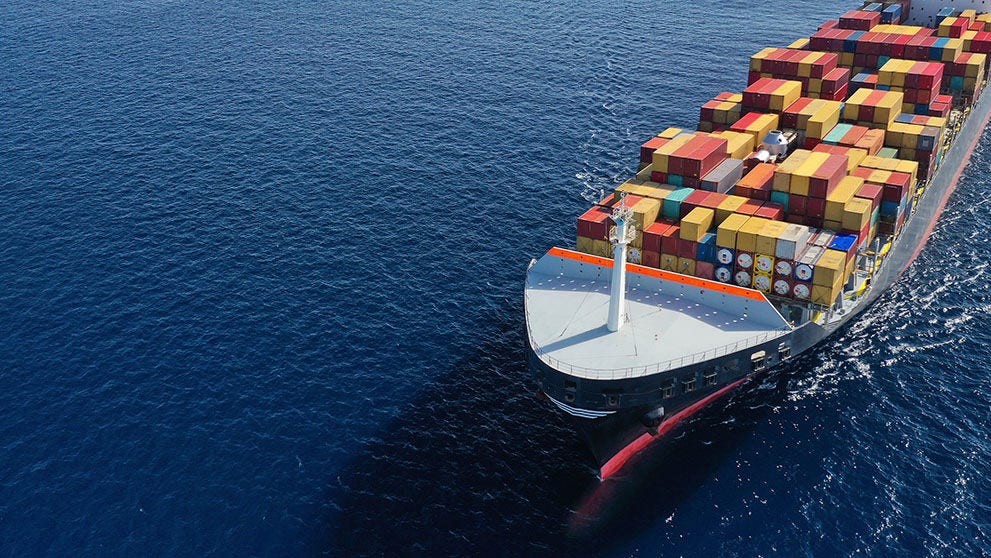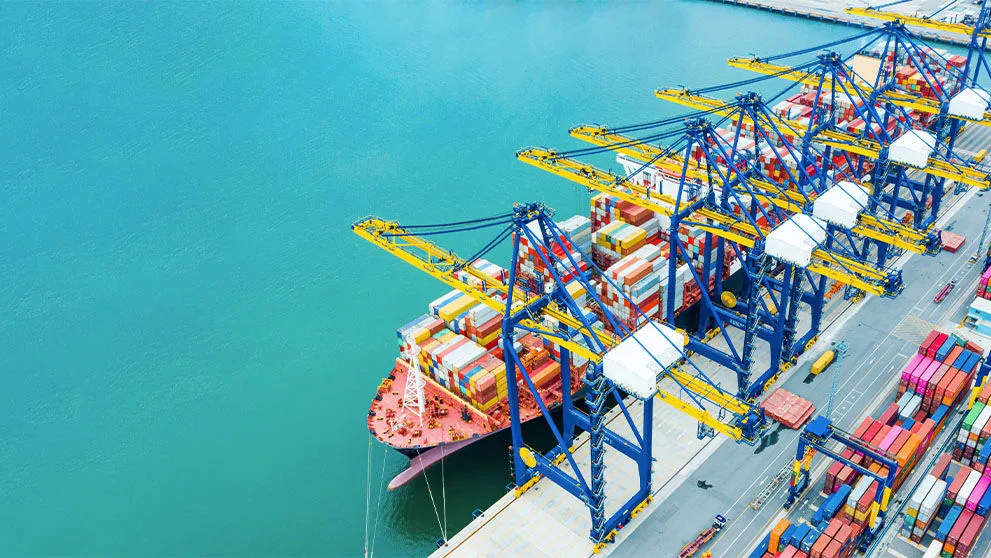
Shipping internationally? One of the key terms you’re likely to come across is “Incoterms®.” In this guide, we’ll decode what they mean, breaking them down into plain language. We’ll share examples of Incoterms®, and how they can impact your business’s customs clearance experience.
What are Incoterms®?
Incoterms® – or “International Commerce Terms” – were established by the International Chamber of Commerce (ICC) to standardize international commercial transactions.
The Incoterms® rules are a globally recognized set of standards, used worldwide in international and domestic contracts for the delivery of goods, clarifying responsibilities between buyer and seller for costs and risk, as well as cargo insurance.
The Incoterms® rules detail the meaning of a series of commercial terms, each designated by three letters, which reflect the practice followed by companies when drawing up contracts for the sale of goods.
Incoterms® help to reduce disputes between buyers and sellers, by defining a uniform set of international trade standards.
Why are Incoterms® important?
Within global trade, Incoterms® provide several benefits:
- Standardization: Incoterms® ensure a uniform “language” for international transactions. With all parties working to the same definitions and guidelines, the risk of disputes arising from misinterpretations is reduced.
- Clarifies responsibilities: Incoterms® outline who is responsible for transportation, cargo insurance, export and import formalities, payment of duties and taxes, and at what point risk transfers from the seller to the buyer. This helps all parties meet their obligations.
- Efficiency: Incoterms® clearly define the trade contract responsibilities between a buyer and a seller, leading to smoother communication and transactions across borders.
Incoterms® explained
- Incoterms® are grouped into two categories based on the modes of transport that will be used. There are seven Incoterms® for any mode of transport, and four for sea, land or inland waterway transport.
- Each Incoterm® is represented by a three-letter abbreviation. This reflects the practice companies follow when drawing up contracts for the sale of goods.
So here they are: the International Chamber of Commerce’s (ICC) official definition of each Incoterm®.
The seven Incoterms® for any mode of transport
DDP
DELIVERED DUTY PAID (DDP) officially means that the seller delivers the goods to the buyer when the goods are placed at the disposal of the buyer, cleared for import, on the arriving means of transport, ready for unloading, at the named place of destination or at the agreed point within that place, if any such point is agreed. The seller bears all risks involved in bringing the goods to the named place of destination or to the agreed point within that place. In this Incoterms® rule, therefore, delivery and arrival at destination are the same.
DAP
DELIVERED AT PLACE (DAP) officially means that the seller delivers the goods – and transfers risk – to the buyer when the goods are placed at the disposal of the buyer on the arriving means of transport ready for unloading at the named place of destination or at the agreed point within that place, if any such point is agreed. The seller bears all risks involved in bringing the goods to the named place of destination or to the agreed point within that place. In this Incoterms® rule, therefore, delivery and arrival at destination are the same.
DPU
DELIVERED AT PLACE UNLOADED (DPU) officially means that the seller delivers the goods – and transfers risk – to the buyer when the goods, once unloaded from the arriving means of transport, are placed at the disposal of the buyer at a named place of destination or at the agreed point within that place, if any such point is agreed. The seller bears all risks involved in bringing the goods to and unloading them at the named place of destination. In this Incoterms® rule, therefore, the delivery and arrival at destination are the same. DPU is the only Incoterms® rule that requires the seller to unload goods at destination. The seller should therefore ensure that it is in a position to organize unloading at the named place. Should the parties intend the seller not to bear the risk and cost of unloading, the DPU rule should be avoided and DAP should be used instead.
EXW
EX WORKS (EXW) officially means that the seller delivers the goods to the buyer when it places the goods at the disposal of the buyer at a named place (like a factory or warehouse), and that named place may or may not be the seller’s premises. For delivery to occur, the seller does not need to load the goods on any collecting vehicle, nor does it need to clear the goods for export, where such clearance is applicable.
FCA
FREE CARRIER (FCA) means that the seller delivers the goods to the buyer in one or other of two ways:
- First, when the named place is the seller’s premises, the goods are delivered when they are loaded on the means of transport arranged by the buyer.
- Second, when the named place is another place, the goods are delivered when, having been loaded on the seller’s means of transport, they reach the named other place and are ready for unloading from that seller’s means of transport and at the disposal of the carrier or of another person nominated by the buyer.
Whichever of the two is chosen as the place of delivery, that place identifies where risk transfers to the buyer and the time from which costs are for the buyer’s account.
CPT
CARRIAGE PAID TO (CPT) officially means that the seller delivers the goods – and transfers the risk – to the buyer by handing them over to the carrier contracted by the seller or by procuring the goods so delivered. The seller may do so by giving the carrier physical possession of the goods in the manner and at the place appropriate to the means of transport used. Once the goods have been delivered to the buyer in this way, the seller does not guarantee that the goods will reach the place of destination in sound condition, in the stated quantity or indeed at all. This is because risk transfers from seller to buyer when the goods are delivered to the buyer by handing them over to the carrier; the seller must nonetheless contract for the carriage of the goods from delivery to the agreed destination.
CIP
CARRIAGE AND INSURANCE PAID TO (CIP) officially means that the seller delivers the goods – and transfers the risk – to the buyer by handing them over to the carrier contracted by the seller or by procuring the goods so delivered. The seller may do so by giving the carrier physical possession of the goods in the manner and at the place appropriate to the means of transport used. Once the goods have been delivered to the buyer in this way, the seller does not guarantee that the goods will reach the place of destination in sound condition, in the stated quantity or indeed at all. This is because risk transfers from seller to buyer when the goods are delivered to the buyer by handing them over to the carrier; the seller must nonetheless contract for the carriage of the goods from delivery to the agreed destination.
The four Incoterms® for sea and inland waterway transport
FAS
FREE ALONGSIDE SHIP (FAS) means that the seller delivers the goods to the buyer when the goods are placed alongside the ship (e.g. on a quay or a barge) nominated by the buyer at the named port of shipment or when the seller procures goods already so delivered. The risk of loss of or damage to the goods transfers when the goods are alongside the ship, and the buyer bears all costs from that moment onward.
FOB
FREE ON BOARD (FOB) means that the seller delivers the goods to the buyer on board the vessel nominated by the buyer at the named port of shipment or procures the goods already so delivered. The risk of loss of or damage to the goods transfers when the goods are on board the vessel, and the buyer bears all costs from that moment onwards.
CFR
COST AND FREIGHT (CFR) officially means that the seller delivers the goods to the buyer on board the vessel or procures the goods already so delivered. The risk of loss of or damage to the goods transfers when the goods are on board the vessel, such that the seller is taken to have performed its obligation to deliver the goods whether or not the goods actually arrive at their destination in sound condition, in the stated quantity or, indeed, at all. In CFR, the seller owes no obligation to the buyer to purchase insurance cover: the buyer would be well-advised therefore to purchase some cover for itself.
CIF
COST INSURANCE AND FREIGHT (CIF) officially means that the seller delivers the goods to the buyer on board the vessel or gains the goods already so delivered. The risk of loss of or damage to the goods transfers when the goods are on board the vessel, such that the seller is taken to have performed its obligation to deliver the goods whether or not the goods actually arrive at their destination in sound condition, in the stated quantity or, indeed, at all.
Choosing the right Incoterms® for your international transactions
As an SME selling to customers cross-border, you should review the Incoterms® definitions (provided by the ICC) and agree on Incoterms® for international transactions with their respective buyers.
Read more about Incoterms® rules from the official International Chamber of Commerce website, where you can also order the “Incoterms® 2020” publication. Sign up for online training on the Incoterms® 2020 rules at icc.academy.
DHL has also put together an Incoterms® guide to help you better understand the different terms; please see the link below:
Disclaimer
- This article is designed to provide a quick overview of the Incoterms® rules frequently used worldwide in international and domestic contracts.
- “Incoterms” is a registered trademark of the International Chamber of Commerce (ICC).
- Read more about Incoterms® rules from the official International Chamber of Commerce website, where you can also order the “Incoterms® 2020” publication.
- Sign up for online training on the Incoterms® 2020 rules at icc.academy
- While we have made every attempt to ensure that the information contained herein has been obtained, produced, and processed from sources believed to be reliable, no warranty, express or implied, is made regarding the accuracy, adequacy, completeness, legality, reliability or usefulness of such information. All information contained herein is provided on an "as is" basis. In no event will DHL Express, its related partnerships or corporations under the DHL Group, or the partners, agents or employees thereof be liable to you or anyone else for any decision made or action taken in reliance on the information contained herein or for any consequential, special or similar damages, even if advised of the possibility of such damages.
For easy international shipping, open a DHL Express Business Account.
























